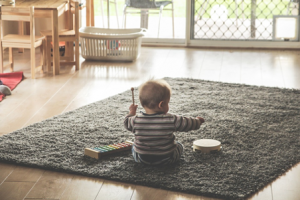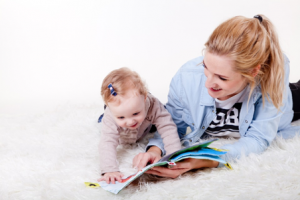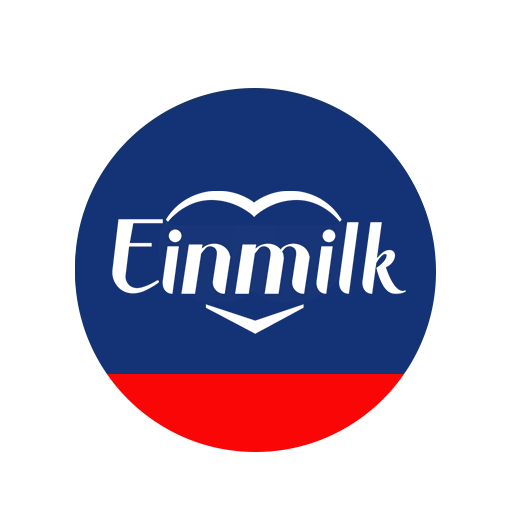Did you know that babies grow tremendously in the first year of their life? From helpless newborns to learning how to sit, crawl, walk and talk, the first 12 months is full of milestones for your baby.
This list of developmental milestones will help you see if your child is on track or if there could be possible developmental delays. If your baby is premature, use their corrected age instead.
Birth to 3 months old
In these first three months, your baby will spend most of their day sleeping, drinking and crying. At birth, their eyesight is poor and the world seems like a big, noisy and scary place. Your voice will be the one that is most recognisable to them as they have been listening to your conversations from inside the womb.
At about two months old, your baby will be able to figure out that they have some control over their body and start to kick their legs, grasp your finger tightly and even smile when you smile at them.
Milestones:
- Smile in response
- Track objects with eyes
- Moves fists from closed to open
- Brings hands to mouth
Activities to stimulate brain development:
- Cuddle and sing
Babies thrive on touch and keeping your baby close to you fosters a stronger parent-child bond. - Massage your baby after baths
Gentle touch has been linked to improved growth and better motor development, especially for premature babies. - Hang a colourful mobile above their cot
Babies thrive on sensory stimulation, and a cot mobile aids in their visual development.

Infants and young children love bopping to the beat of music, and music has been known to stimulate brain development too!
4 to 6 months old
No longer a newborn, your infant is now alert and active. Curious about the world, babies love learning about the world through simple activities. You will notice that your baby is learning how to flip and can raise their head when lying on their tummy. With clearer vision, your baby can enjoy toys with complex patterns and colours.
Milestones:
- Flips from back to tummy and tummy to back
- Reaches for nearby objects while on tummy
- Able to lift head up
- Turns head towards sounds
- Babbles to get attention
Activities to stimulate brain development:
- Play simple games
Simple games like peek-a-boo or hiding a toy under a blanket encourages your infant to interact with you in a fun manner. - Read to your baby
It can never be too early to introduce your child to the beauty of books. Reading promotes speech and thought development. Start by reading basic picture board books featuring large, bright pictures and be as descriptive as possible. - Offer simple toys
Building a sensory boxcost very little, and you don’t have to specially buy things intentionally for this purpose. Look around your house for items that you can use to stimulate your baby’s sense of smell, touch, sound, sight and taste.

 Reading is a good habit that can be cultivated from young
Reading is a good habit that can be cultivated from young
7 to 9 months old
Your infant is becoming more mobile and if he hasn’t started crawling yet, he will soon. One of the most exciting moments of this stage is that your baby can have his first taste of solid food. His gums may begin to ache and your baby may be drooling more often than usual.
Milestones:
- Says first word
- Stands with support
- Sits upright
- Grasps objects between thumb and forefinger
Activities to stimulate brain development:
- Introduce stacking toys
Among the fun activities that a 7 to 9 month old baby can do is stacking. It doesn’t have to be limited to blocks. Books, cups, containers – anything can be stacked up. - Offer finger food
Whether you’re doing traditional weaning or baby-led weaning, finger foods such as steamed broccoli, avocado or teething rusks encourages your baby to self-feed and explore various textures and colours.
10 to 12 months old
Before your baby turns one-year-old, you can expect greater cognitive skills, evolving language skills and a distinctive personality unique to your toddler. Infant development is rapid at this age.
Milestones:
- Pulls to stand or cruises
- Stands without support
- Claps hands
- Shakes head
- Waves goodbye
Activities to stimulate brain development:
- Converse with your child
Your toddler may be babbling, but did you know that babbling is how toddlers develop communication skills? By responding to your child’s babbling in proper sentences, your child will feel respected and engaged. - Outdoor play
The benefits of outdoor play are immense, and the world is your toddler’s playground. A walk at the park or even to the Zoo can be an exciting trip for him. - Teach action songs
Action songs like “Head, shoulders, knees and toes” or “Hokey Pokey” not only teach your toddler about her body parts, but gets her bopping to music. Dancing is a way for toddlers to express themselves, much like singing.
As your baby enters toddlerhood, their reliance on milk decreases. Some mums may wish to transit their baby from breastmilk to formula milk, or supplement their diet with formula milk powder. Ensuring that your toddler eats well and right helps them to meet their growing needs.
What was your most memorable baby milestone? Share it with us in the comments!

